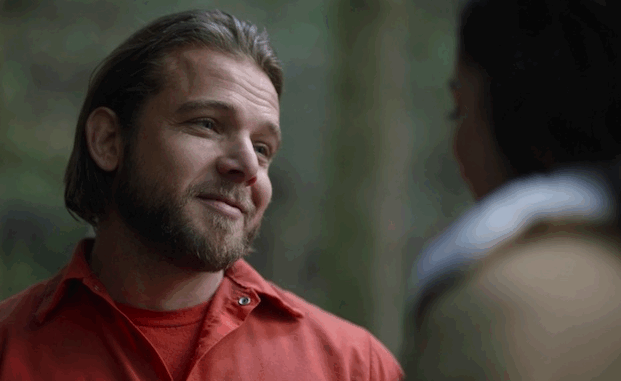
As climate disasters become more frequent and devastating, TV dramas have slowly begun reflecting the stark new realities we face. But few do it with the urgency and authenticity of Fire Country. This action-packed, emotionally-driven series isn’t just about personal redemption and heroic rescues—it’s also a powerful mirror of the climate crisis, told through the lens of those fighting its most destructive consequences.
Set in Northern California, where wildfires are no longer seasonal but year-round threats, Fire Country dives into the lives of firefighters and inmate crews who put everything on the line to save homes, forests, and lives. But behind the firefighting drama lies a sobering truth: climate change isn’t just a backdrop—it’s a character in its own right.
Let’s explore how Fire Country reveals the environmental catastrophe we’re living through—and why that matters.
Wildfires Are No Longer “Natural Disasters”
One of the first things Fire Country gets right is the normalization of disaster. In this world, fire season isn’t a surprise—it’s expected, even dreaded. The characters plan their lives around it. It disrupts their relationships, their routines, their mental health. This constant state of emergency reflects real-life California, where megafires have reshaped entire communities, displaced thousands, and left scars on both the land and its people.
Rather than depicting wildfires as one-off emergencies caused by lightning or accidents, the show implies what scientists have long confirmed: climate change is fueling more intense, frequent, and fast-moving fires. Prolonged droughts, record-breaking heatwaves, and shrinking snowpacks create the perfect storm, quite literally.
Fire Country doesn’t hammer us with climate data. Instead, it lets viewers feel the impact through emotional storytelling, putting us face-to-face with characters who carry the weight of living in a burning world.
Environmental Storytelling in Action

In many episodes, we see the wildfire threat escalate beyond control. What starts as a small brush fire quickly becomes a full-blown emergency. These sequences aren’t exaggerated for drama—they’re modeled after real fire behavior, which has become increasingly unpredictable and dangerous due to a changing climate.
We watch as firefighters are forced to make impossible choices: which homes to save, which paths to clear, when to retreat. These decisions are rooted in scarcity—of time, water, resources, and manpower—a direct consequence of climate stress.
The show even subtly touches on land management policies, such as controlled burns, forest thinning, and firebreaks, showing how preventative measures are often underfunded or politically unpopular. This adds a layer of realism, revealing that environmental solutions exist—but so do systemic failures that block them.
The Emotional Toll of Climate Disaster
Firefighting is more than a job in Fire Country—it’s a crucible. And that crucible is shaped by more than flames. It’s shaped by loss. Many characters are trauma survivors—not only from firefighting incidents but from the slow violence of climate change. The endless cycle of fires takes a mental toll, especially on those who witness its destruction up close.
For example, Bode Donovan’s journey is as much about internal fire as external ones. His guilt, regret, and hope for redemption parallel the burn-and-rebuild cycle of the forests he helps protect. Sharon and Vince Leone carry the burden of protecting a community that may never be safe again. Gabriela and Eve often wrestle with the uncertainty of what the future holds in a world on fire.
This emotional realism makes Fire Country stand out. It doesn’t sensationalize disaster—it humanizes it.
Fire as a Symbol: Destruction, Renewal, and Reckoning
Beyond literal flames, fire in the show serves as a powerful metaphor. It represents destruction, yes—but also rebirth. Forests regrow. Lives are rebuilt. Prisoners become heroes. The fire that takes can also give.
This metaphor applies equally to our climate predicament. While much has been lost, Fire Country dares to suggest that there’s still time to fight, to change course, to reclaim what we can. It’s not a message of blind optimism—but of resilient hope.
The series also offers a kind of reckoning—a reminder that nature will not wait for politics to catch up. That human decisions have consequences. That ignoring the climate crisis will only worsen it.
Raising Awareness Through Entertainment
While Fire Country isn’t branded as an environmental drama, it may be one of the most important climate shows on television. Why? Because it reaches audiences that might otherwise tune out the news or dismiss documentaries. It speaks the language of character, conflict, and catharsis—while smuggling in crucial truths.
Viewers who come for the action and drama walk away with a deeper understanding of what’s at stake. They feel it. And feeling is often the first step to caring—and acting.
The show also sparks conversations beyond the screen. It reminds us to think about how we vote, what we value, and whether we’re doing enough to protect the planet our children will inherit.
Conclusion: Fighting Fire with Fire—and Truth
Fire Country doesn’t pretend to have all the answers. It doesn’t offer clean solutions or happy endings. But what it does provide is a wake-up call—not just to the courage of firefighters, but to the burning reality we all face.
By embedding climate truth into its fiery storylines, the show becomes more than a drama. It becomes a warning—and a tribute—to those who stand between us and disaster.
The planet is burning. But if Fire Country teaches us anything, it’s this: it’s not too late to fight back.
